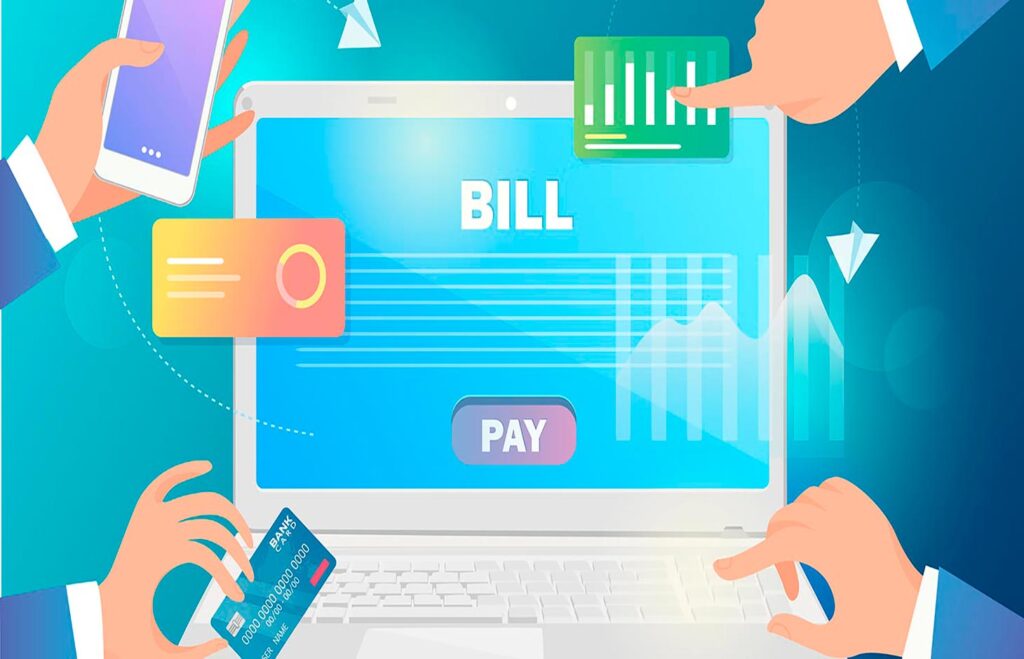Billing disputes are far from desirable, but unfortunately they’re extremely common.
According to a study by Javelin Strategy and Research, 45% of consumers dispute at least one credit card charge every year, and chargebacks rose 179% from 2018 to 2020.
As much as 80% of these disputes are the result of friendly fraud, or customers requesting chargebacks instead of refunds. This can happen for a number of reasons ranging from simple misunderstandings to intentional attempts to not pay for a subscription, the research found.
Billing disputes are a drain on SaaS businesses’ time, resources, and reputation—not to mention a potential opening for revenue leakage.
When a dispute arises, the liability and burden of proof falls to the business.
Chargebacks often result in merchant fees, and a high chargeback rate can draw the wrong kind of attention from your payment processor.
This makes billing disputes an all-around pain. However, as with most things, there’s loads SaaS business leaders can learn from these unfortunate occurrences.
Recurring billing disputes are more than just a drain on revenue
Beyond the obvious profit and resource loss incurred while handling billing disputes, a high chargeback rate could indicate a communication or customer relations issue within your SaaS business. When customers choose to dispute charges through their card issuer rather than seek a refund with your business, they’re choosing an alternate communication channel at your expense.
That should catch your attention.
If customers dispute charges from your SaaS business at a high rate, it’s important to figure out what’s causing the issues and take corrective action.
Here are six of the most common recurring billing disputes SaaS businesses encounter. Then we’ll dig into what you can do about them.
1. “Someone else used my credit card.”
Credit card fraud skyrocketed in 2019, increasing 72.4% from 2018 and cementing its status as the most common form of identity theft. Sometimes this is the result of someone close to the card holder, such as a family member using the card without permission. But more often, the card holder’s information has somehow been compromised.
As instances of credit card fraud rise, it’s reasonable to believe at some point your customers—and business—will fall victim.
Below, we’ll cover how to fight fraud and retain this revenue with strict payment standards.
2. “I don’t know what this charge is for.”
Another common reason for recurring billing disputes is customers not recognizing the originator or items attached to charges. This might be due to confusing invoices, unclear descriptors, or inadequate communication about charges.
Clarity is key, and in about 27% of cases, consumers realize the charges are in fact correct after they connect with their financial institutions.
Alternately, a customer may also not have realized the charge was a recurring charge or forgot it would occur automatically. These disputes can be particularly damaging to a SaaS brand as it can look like the business is making fraudulent charges or using misleading advertising.
Even if you manage to contact a customer and explain the situation, the brand can still appear unprofessional or uncoordinated.
3. “I’m dissatisfied with my subscription.”
In an ideal world, every subscriber is satisfied or has their issues fully addressed by customer support.
Unfortunately, dissatisfaction happens and some customers turn to their card issuer rather than their SaaS provider to stop charges.
Why? Perhaps there wasn’t a clear path to cancel or obtain a refund, or maybe the refund process was taking too long.
Others may be so dissatisfied with the subscription and/or customer support that they no longer want to communicate with the business. Instead, they circumvent those options and “handle it themselves” by going to their credit card company or bank.
Understandably, customers that have reached this point of frustration won’t have good things to say about your SaaS brand.
4. “I got charged twice for the same thing.”
Glitches like duplicate processing happen, whether due to tech hiccups or a subscriber clicking a payment button twice. Sometimes, a pending charge may remain on a customer’s statement even though an actual charge has gone through, creating confusion and leading to a billing dispute. These are innocent mishaps.
However, it’s possible for subscribers to misunderstand the nature of recurring billing payments if it isn’t clearly laid out.
A “duplicate charge” a month after initial sign-up could actually be the monthly subscription fee the customer signed up for, not realizing they weren’t making a one-time purchase.
SaaS businesses must be very clear about their recurring billing terms, or risk creating an impression of dishonesty.
5. “I cancelled my subscription but still got charged.”
Particularly in the case of a cancellation over phone, chat support, or email, many customers are surprised to be charged after they’ve ended a SaaS subscription. This might be due to a clerical error on the business’s end.
Alternately, the customer may not have realized they’d still be charged for a period of time leading up to the cancellation.
From a customer’s perspective, this obviously doesn’t look good.
Continued charges after a confirmed cancellation give a SaaS brand the appearance of not respecting customers’ decisions and being money-hungry.
6. “I just don’t want to pay for this.”
Unfortunately, in most cases of ‘friendly fraud’ the customer simply wants to avoid paying for the product. These can be hard to detect as they may list other reasons for disputing the charge to mask their actual intent.
If the customer has already tried to get a refund and been denied, they may lash out on social media and review sites in addition to requesting a chargeback.
This could drag down your brand’s reputation and chargeback rate all at once.
How to combat recurring billing disputes
Each type of billing disputes comes with its own unique hurdles. However, automating your billing and subscription management process with an adaptive recurring billing solution mitigates disputes and chargeback impact with robust features and functionality.
1. Fight fraud with strict payment standards.
With built-in tools for collecting and scanning payment information for red flags, intelligent recurring billing software automatically denies expired and invalid credit cards before a transaction is complete.
Additional fraud tracking mechanisms and tougher verification steps for purchases originating in countries considered high-risk for fraud can supplement this automated fraud deterrent.
Additionally, your recurring billing platform should be fully PCI compliant, which ensures that your customers’ payment information is stored securely and protected.
2. Provide crystal-clear invoices that explain charges.
When a customer understands with full clarity every charge they’re billed for, confusion and billing disputes drop. Your billing platform should enable you to customize invoices, including line-item descriptions on both the plan and customer level.
In addition to payment descriptors on customers’ statements and being up-front about what charges to expect, easy-to-understand invoices are an important part of the effort to reduce billing disputes.
3. Direct dissatisfied customers to your support team.
With automated billing, every invoice and communication can include all a SaaS business’s contact information and direct line of contact to your finance or customer support department.
This makes it easier for a dissatisfied customer to quickly reach someone able to help them or guide them through the cancellation or refund process, rather than turning to their card issuer to dispute charges.
4. Automate payment collection to avoid duplicate charges.
Automated collections mean neither staff nor customers are manually processing payments, which reduces the chance of clerical errors. An optimized dunning management process can be of great value in this process too.
5. Prorate automatically to avoid incorrect charges and confusion after cancellation.
When someone wants to cancel their subscription with your business halfway through a billing period, what happens?
Do they receive one more invoice for their subscription activity up until the point of cancellation?
A robust automated billing software performs all necessary calculations, applies cancellation fees if applicable, and produces an easy-to-understand final invoice to avoid billing disputes.
6. Gain better insights on the customer journey.
With the right recurring billing engine, you’ll have an accurate, transparent, and well-documented representation of the entire customer journey.
With detailed finance and account data just a click away, it becomes much easier to manage customers that are disputing charges.
Recurring billing disputes are inevitable, but you can take control
While recurring billing disputes are bound to happen eventually, adaptive automated billing software makes it possible to reduce chargebacks and direct subscribers to the appropriate support team when needed.
With clear invoices, automation, and detailed data that helps your team provide the best service possible, these platforms reduce the odds of a customer turning to their credit card company rather than your business team for billing queries. It also reduces the chances that they’ll turn to the internet to air their grievances.
The result is less time and resources spent challenging billing disputes, and a better reputation even among customers who may not have found what they needed with your SaaS product.
FAQs about Billing Disputes
Q: What are the top recurring billing disputes that can harm a SaaS Brand?
The top six recurring billing disputes that may damage a SaaS brand include credit card fraud, customers not recognizing the origin of charges, customer dissatisfaction leading to cancellation of charges, technical glitches resulting in duplicate processing, charges after a confirmed cancellation, and incidences of ‘friendly fraud’ where customers simply wish to avoid payment.
Q: What is the impact of billing disputes on a SaaS Business?
Besides the immediate financial loss, billing disputes can affect a SaaS business negatively by draining time and resources, damaging reputation, and creating potential avenues for revenue leakage. If customers report high rates of charge disputes, this could indicate a communication gap or a customer relations issue within the business.
Q: Who is usually held liable when a billing dispute arises?
When disputes arise in a SaaS business, the liability and burden of proof primarily falls on the business itself. Often, the business is obliged to pay merchant fees resulting from chargebacks and a high chargeback rate might attract unwanted attention from payment processors.
Q: Why do customers tend to dispute charges instead of requesting refunds?
Reasons may range from lack of a clear path to obtaining a refund, refund processes taking too long, or existing dissatisfaction with the service or customer support. Consequently, customers might find it easier to dispute the charges directly with their card issuing company.
Q: What measures can a SaaS business take to prevent recurring billing disputes?
SaaS businesses can adopt adaptive recurring billing solutions to automatically detect fraud, provide clear and customized invoices, and ensure quick, easy communication channels between customers and the support team. This software can reduce chargebacks, direct unsatisfied customers to the appropriate support, and handle cancellations in a transparent way, reducing chances for disputes.
Q: How can a SaaS business manage ‘friendly fraud’?
‘Friendly Fraud,’ where customers intend to avoid payment, poses a tough challenge for SaaS businesses. It’s important for businesses to put robust refund policies and vigilant customer service in place to prevent such instances. In cases where a request for refund has been denied, businesses should have practices in place to manage such cases effectively without damaging the brand’s reputation.







